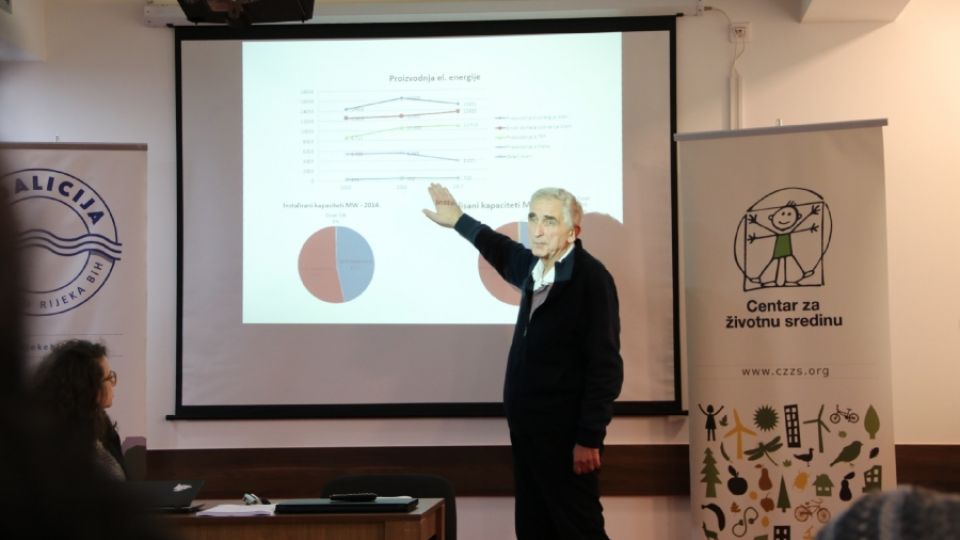Bosnia and Herzegovina's current system of concession fees and incentives for small hydropower plants is economically unjustified and is socially harmful, as it produces direct social and financial losses over BAM 4 million (EUR 2 million). Damir Miljević was commissioned by the Center for Environment.
"The total societal damage resulting from further application of this model of subsidizing electricity generation in small hydropower plants for the next 10 years is estimated at more than 40 million (EUR 20 million) on the basis of already operating parts alone; it would be doubled if they were approved for all the plants for which they have applied,” stated Miljević.

He emphasizes that the current system of concession fee arrangements and incentives for small hydropower plants needs to urgently undergo significant changes, and it needs to be redefined to avoid further societal damage: "We need to avoid increasing the total social losses which will inevitably result from new small hydropower plants that are planned or are already under construction,” he concluded. The Center for Environment's work on the problems of rapid small hydropower development in Bosnia and Herzegovina has indicated that it is the investors that benefit from their construction rather than any kind of public interest.
“Considering that all electricity consumers in Bosnia and Herzegovina pay for the development of renewable energy sources on their monthly electricity bill, it would make more sense to use the money for energy savings and sustainable renewables, such as solar and wind. Hydropower plants bring much more harm than benefit, and this analysis, once again, proves this. This time it's shown exclusively from a financial feasibility angle,” said Nataša Crnković, president of the Center for Environment.

The system is highly attractive for investors and has caused a rush for concessions and subsidies which threatens almost every watercourse in Bosnia-Herzegovina.
Bosnia and Herzegovina's entity-level governments are mainly based on their plans to fulfill their international binding targets for renewable energy in total energy consumption. The current system for issuing concessions is complicated, chaotic, and unbalanced with space for discretion in decision-making which creates space for manipulation, corruption and unfair competition.
This analysis has been carried out as part of the "Save the Blue Heart of Europe" campaign by RiverWatch and EuroNatur, in cooperation with local partners across the Balkans.







